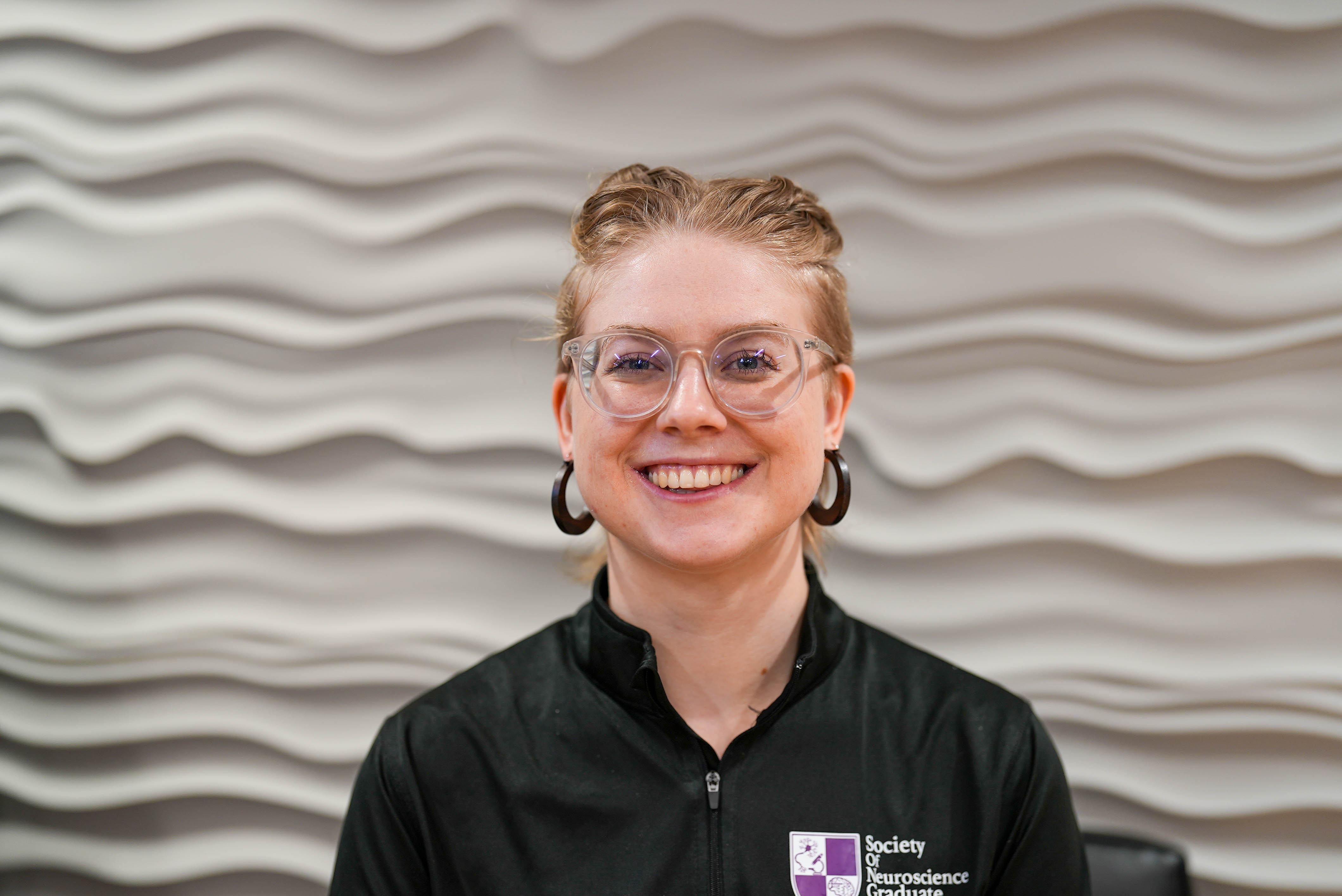Admissions
Equity, Diversity, Inclusion and Decolonization
The School of Graduate and Postdoctoral Studies is committed to equity, diversity, inclusion and decolonization in all aspects of graduate and postdoctoral studies. For more information regarding these commitments please visit grad.uwo.ca/edi-d.
Neuroscience
Master of Science (MSc)Meet Rae Hoeppner, MSc to PhD candidate in Neuroscience

Describe your research.
I research statistical learning in bilinguals, and how cognitive control might be a mediating factor. Since bilinguals have to switch between their two languages, does this mean they’re better at switching tasks in other parts of life, and does this influence how they learn new languages? I specifically look at how they used statistical learning to learn languages, which is the process in which patterns in the environment are learnt without conscious effort. Traditionally, statistical learning studies focus on how one language is acquired, but to better model how bilinguals learn and manage languages, I have them learn two languages, one after the other.
What is your “dream” career?
I would love to work with language learning companies or the government to continue to look at how we learn languages, and what strategies we can develop to help.
What are you most passionate about?
I would say I am most passionate about creating safe and inviting spaces for Queer people, but also community building in general.
What one thing would you like people to know about you?
I really love music. So much so, that in 2023, I listened to 92,204 minutes, which amounts to 64 days straight of listening to music.
Program Websites
Program Contact
Susan Simpson (neuroscience@uwo.ca)Program Coordinator
Western Interdisciplinary Research Building
Western UniversityRm 3168
London, Ontario N6A 3K7
t. 519-661-4039
The Master of Science program provides an interdisciplinary and research intensive learning experience in Neuroscience. Students develop with their supervisor an individual research project which is usually completed within two years of registration. Critical thinking and a broad overview of neuroscience research is also emphasized through the Neuroscience 9500 course and weekly Seminar Series.
Program Length
- 6 Terms
Program Design
- Full-time study
- Thesis-based
Funding Information
Applicants are encouraged to apply for the following scholarships (if eligible):
Tuition and Fees
Tuition and fee schedules (per term) are posted on the Office of the Registrar's website at http://www.registrar.uwo.ca/student_finances/fees_refunds/fee_schedules.html
Graduate Student Affordability Calculator
Use this helpful tool to estimate how much money you will need to pay for your tuition, fees, housing, food, and other necessities for a 12-month (three term) academic year.
Admission Requirements
- Honours Bachelor degree (or equivalent) from a recognized university or college.
- At least an A (80%) over the final two years is recommended; this is equivalent to a high second class standing at some universities.
Additional Requirements
- It is highly recommended that all students complete a course in mathematics and courses in biological and natural sciences at the university level.
- Courses in biological sciences at second year levels will be useful for successful completion of the required Principles of Neuroscience course.
English Language Proficiency
Applicants whose first language is not English must furnish evidence of their proficiency in the use of the English language:
- The Test of English as a Foreign Language (TOEFL). Minimum acceptable score is 100 for the internet version, with no individual score below 25. [Western's TOEFL ID is 0984].
- The International English Language Testing Service (IELTS) of the British Council. Minimum required score is 7.
- The Duolingo English Test. Applicants must attain a minimum score of 120.
Application Deadline
Application Opens: November 1, 2025
Deadline (Extended): February 27, 2026
Important Notes:
- The application deadline has been extended for applicants with an interest in working with a Faculty Supervisor whose home department is within the Schulich School of Medicine & Dentistry, Faculty of Health Sciences, or Faculty of Science (Biology or Computer Science).
- If your intended supervisor is in the Department of Psychology or Department of Mathematics, your application must have been submitted no later than January 9, 2026.






